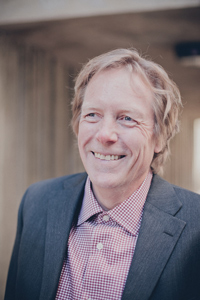Since the Alberta government is committed to hosing away an extra $3 million of our tax dollars on Monday on the ridiculous exercise of a “Senate nominee election,” progressive voters deserve the opportunity to express their protest more effectively than by spoiling than their ballots or formally declining them.
It’s a pity the more progressive parties didn’t take advantage of this spectacular opportunity for free advertising despite the preference of most of their supporters for a Triple-A Senate — that is, Abolish, Abolish and Abolish.
The Senate vote, after all, was going ahead anyway, whether or not we approved — and, as Ralph Waldo Emerson wisely observed, “a foolish consistency is the hobgoblin of little minds.”
But they didn’t, so we are left with the choice between a meaningless protest or supporting the only candidates in the race who can be considered even close to progressive, University of Alberta Political Science professor Ian Urquhart and St. Albert City Councillor Len Bracko.
Urquhart, who admits to once supporting the Progressive Conservatives in Ottawa and who has been active in the Alberta Wilderness Association, told the Edmonton Journal in March he has become concerned about the Harper Government’s “search and destroy” approach to dealing with Canadians who want to protect the environment.
Bracko, who served for a spell in the Alberta Legislature as a Liberal MLA, has a long record of service to the Edmonton-area bedroom community of St. Albert. On a less positive note, he campaigned on a disappointingly conservative platform in the last municipal election and his recent council performance has been less than stellar.
All the rest are associated with either the Progressive Conservative or the Wildrose branches of the Conservative Party, which has been noted here before, are essentially the same in all important regards.
Senate “reform” — as opposed to Senate abolition, which is what is needed — has long been a hobbyhorse of the perpetually dissatisfied far right in this part of the country. These people imagine that a U.S.-style upper house in place of the undemocratic and largely symbolic 19th Century relic we now have would be a panacea to their feelings of alienation in a larger federation where the majority of citizens don’t share their antediluvian views. Thus they have demanded for years a “Triple-E Senate,” meaning elected, equal and effective.
Accordingly, to score a propaganda point and scoop up a few of the farthest-right votes, Alberta Progressive Conservative governments held faux Senator elections in 1989 and 2004.
The federal Liberals were in power in 2004, and ignored the results of that vote. However, upon coming to power Conservative Prime Minister Stephen Harper appointed one of the four “Senators in Waiting,” a well-off Calgary area farmer named Bert Brown, to the misnamed Red Chamber.
Brown is the fellow who cut the letters EEE into a barley field north of Calgary International Airport, proving that, in Alberta, there’s freedom of the press for anyone who owns a field and a threshing machine. He later went on to renown as the Senate’s biggest spenders of taxpayer dollars, which shouldn’t surprise anyone who follows Conservative behaviour, as opposed to Conservative rhetoric.
Others, like Link Byfield of the nutty right-wing publishing empire founded by his father, proved too much even for our neo-Con prime minister to stomach. Byfield has given up on his senatorial dreams and is now carrying the standard of the Wildrose Party in the Barrhead-Morinville-Westlock riding northwest of Edmonton.
Whatever, the pressure for a reformed Senate has largely disappeared for two reasons: first, the people who imagined they could never win power without a Triple-E Senate have won power, and, second, the population and influence of the more-conservative West has increased and is likely to continue to grow.
The PM, however, persisted with the idea of a Senate Reform Act — which was introduced to Parliament last spring — probably because he sees the Senate as a useful wedge issue and because a Conservative-packed Senate empowered to activism would be a useful brake on progressive policies introduced by some future non-Conservative government.
That act, according to the government’s news release at the time, “provides a voluntary framework for provinces to implement a democratic process that enables voters to select nominees for the Senate. The Prime Minister will be required to consider the names of Senate nominees when making recommendations on appointments to the Senate.” (Emphasis added.)
Now, never mind the qualification about recommendations — it’s the PM and his inner circle who decide who will become a Senator. In our system, a recommendation to the Crown is really a command. But note that the act will leave an escape hatch open for the prime minister in the event voters should decide to cast their ballots for the candidate not approved by our neo-Con masters.
Still, it’s said here this would not be the worst outcome — if a progressive candidate were chosen to be rejected by the Ottawa neo-Cons — because it would prove the prime minister’s Senate reform is a fraud and provide the democratic justification to abolish this chamber once and for all.
So why not vote for Urquhart and “pump the ballot” a little in his favour by voting for no one else, as is your right. If you are simply compelled to vote for more than one simply because you can, you could mark your ballot for both Urquhart and Bracko.
If either an environmentalist or a Liberal wins, it’s a safe bet that Harper won’t appoint him to the Senate, which will serve the useful purpose of proving once again that our PM is a shifty manipulator.
If by some miracle he is telling the truth and appoints the candidate we choose, at least we’ll have one rare progressive voice in the Senate.
It’s not much to get for our $3 million, but it’s something.
This post also appears on david Climenhaga’s blog, Alberta Diary.



